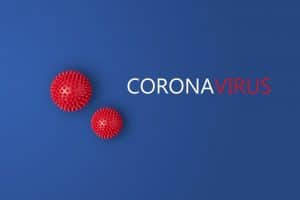COVID-19: Symptoms and Prevention Methods
 We are used to the cold and flu season overlapping with allergy season and learning to navigate symptoms to tell whether you need a Claritin or Nyquil, but the addition of the COVID-19 virus has changed the way we interact with our health, including making us wary of any emerging symptoms.
We are used to the cold and flu season overlapping with allergy season and learning to navigate symptoms to tell whether you need a Claritin or Nyquil, but the addition of the COVID-19 virus has changed the way we interact with our health, including making us wary of any emerging symptoms.
So how can you tell whether your symptoms are a result of a simple cold, seasonal allergies, or COVID-19? And how can we avoid contracting diseases? We’ve put together some important information about the virus, and what you should do if you think you are sick.
Examining your symptoms
There are a few ways you can tell if you are experiencing something worse than a cold. The CDC has a page on COVID-19 symptoms as well as where and when to seek treatment. The main symptoms of the virus are:
- Fever
- Cough
- Shortness of breath
This page also includes a coronavirus self-checker where you can compare symptoms you are experiencing with those of common COVID-19 symptoms.
Who is at risk?
Some people are at a higher risk of contracting the disease and having it progress to a dangerous level. This includes:
- Older adults (65+)
- Especially those in a nursing home or long-term care facility
- People with HIV
- People with asthma
- People with underlying health conditions, including diabetes, renal failure, or liver disease, etc.
- Pregnant women
- Those who have received cancer treatments of organ transplants
How you can avoid it
Washing your hands can be paramount to avoiding germs. The Los Angeles Times published an article on songs that you can sing while washing your hands to ensure that you have done a thorough job. Some of them include the choruses of Beyonce’s “Love On Top,” Lizzo’s “Truth Hurts,” and Fleetwood Mac’s “Landslide.” For a full list, click this link.
The practice of social distancing is highly recommended to avoid contact with those who may spread the virus to you. This is described by the CDC as “remaining out of congregate settings, avoiding mass gatherings, and maintaining distance (approximately 6 feet or 2 meters) from others when possible.” For more information, visit their guidelines page.
What should you do if you have been exposed?
If you have been exposed to the virus (come in contact with someone who has had it), there are steps you can take. If you begin to show symptoms, contact the NC State Laboratory of Public Health for more information.
In North Carolina only those that meet the following symptoms can be tested:
- Have a fever or lower respiratory symptoms (cough, shortness of breath) and close contact with a confirmed COVID-19 case within the past 14 days; OR
- Have a fever and lower respiratory symptoms (cough, shortness of breath) and a negative rapid flu test
What should you do if you’ve been infected?
Those who have tested positive for the virus should practice self-isolation. Avoid contact with other people. It is recommended that you continue this until either 3 days have passed since recovery and 7 days have passed since symptoms first presented. More information can be found on the website for the NC Department of Health and Human Services and on their COVID-19 fact sheet.
There is currently no known treatment for COVID-19. Rest and fluids are suggested by the CDC as well as over-the-counter medicines that may help treat the symptoms.
What Warren & Kallianos, PLLC is doing to keep clients safe
Different counties in North Carolina have ordered people to shelter-in-place, including Mecklenburg County. In order to respect this order, and to help ensure the safety and wellbeing of our clients, Warren & Kallianos, PLLC is offering remote consultations via video conference and phone. We will continue to work hard for the people of our community during this time.
If you wish to schedule a consultation or have questions about how your case may be affected by the COVID-19 outbreak, please call 704-377-7777 or complete our contact form.

At Warren & Kallianos, we believe in the importance of working directly with our attorneys, Jeff Warren and Chris Kallianos. When you work with our firm, Jeff and Chris are always accessible to you throughout the progress of your case.
Read more about Warren & Kallianos, PLLC
